Erika Szychowski, Founder & CEO of Good Zebra, a snack foods company, has re-engineered the beloved animal cookie of childhood into a staple of today with organic ingredients, packed with protein and a wicked sense of humor. This ain’t your kid’s animal cracker……did we mention these are spirit animal cookies (and at the ready on good-zebra.com)?
1. Fear. Leaving the safety of a steady paycheck. What’s your story? How do you overcome it?
When I found myself in a place where I truly couldn’t face another corporate gig, I realized my only choice was to look fear in the face and be determined enough to let the good days outweigh the challenging ones. I hired a coach, I enlisted friends and I created a routine. A little over a year later I practice daily meditation and haven’t progressed passed the constant reminder to let go and ‘trust the process’ but I’ll get there someday. The point is that I keep on trying.
Fearless is the brand’s internal mantra, so I must embody that and when in doubt – or when kicked, I have a trusted inner circle of dear, beloved friends that prop me up and will absolutely not allow me to wallow. Just this morning I debated with myself about giving up --- then took a run, sat on the river and meditated and saw a new solution.
2. Why snack foods? Why Good Zebra? What does the name mean?
Bad luck – ok well, dumb luck maybe. This is the 4th industry shift that has found me – having worked my way through sports and entertainment, financial services and then fashion I realized that my main skill set is seeking solutions to everyday business situations regardless of the product or industry. About 6 years ago I became aware of my sugar intake, but love sweets so had to always mix up my own with honey or maple syrup. My creations became popular amongst friends and colleagues and so a thought began to flicker. Over time, I read everything I could get my hands on in the snack food industry, joined groups, attended events and tradeshows. I realized sugar is not only my challenge, but that of an entire industry as it’s the key ingredient of pretty much all things sealed in a bag. So I set out to create a solution for that – updated for how people live today and with a clever voice.
When naming the company I did a word exercise in regards to the words that identified the type of brand, product and company ethics that best aligned with the intentions and then took those words and tried to assign them to a “thing”. Fearless, Female Led, protective, transparent, disruptive, and loyal were among the list of key words I looked at. With a bit of creative thinking we found that Zebras:
- Don’t freeze in danger: Fearless
- Noisy: Disruptive
- Move in a harem and huddle together when in danger: Female led / Protective
- Very seldom alone: Loyal
- AND every zebra carries unique and different stripes: Transparent
Having landed on Zebra and our mission of solving the sugar rush, we added Good to the name. Good Zebra was born! And very simply, Good Zebra is black + white [nothing shady].
3. Entrepreneur. It’s a word that we hear so often these days. What is your definition?
Someone ready to hustle and see that success isn’t an option, but an only choice.
4. Having worked in the corporate area and now in the start-up world, key differences and does the corporate world need to change?
I got pretty used to having a large team of people to get things done, but with that came corporate politics and a lot of process and procedure. Start-ups are built by innovative thinking, humility, loyalty and aligned beliefs for the greater good. Lots of compromise, but knowing what is worth it and what isn’t makes it easy to pivot and go a different direction. Corporations can’t do this so easily – of course they need to change. They have an entire generation of entrepreneurs bubbling up around them – called Millennials.
5. 3 pieces of advice you would give someone starting their own business.
1. Create a very tight inner circle because you’re going to need more support than ever before.
2. Trust yourself and the process. For me personally, every time I rushed a step, it had to be redone.
3. Keep a journal. The ups and the downs poured out on paper seem to have a much different interpretation a day or two later.
